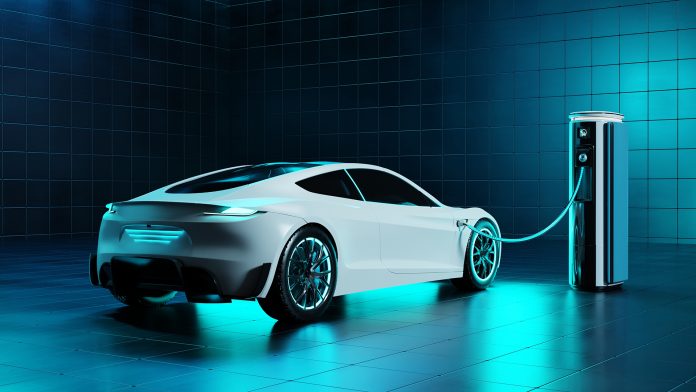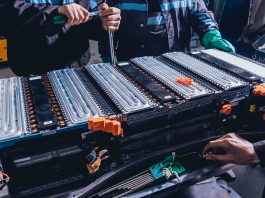SELECT Power Systems recognises that widespread adoption of electric vehicles will not be possible without the appropriate support for the accompanying infrastructure.
Select power systems (SPS) offers quality, detailed, and comprehensive support for the ever-evolving utility industry. Specialising in engineering, design, and management solutions, we offer tailored solutions and packages to our partners and clients, meeting the specific needs of each.
Our highly skilled, and experienced team are experts in their field, and work to address the individual and common power challenges faced by our clients. SPS is a certified, woman-owned small business, established in 2017 when CEO Heather Eason decided to branch out with her 20 years of experience, on a mission to approach the engineering industry differently.
SPS champions progress and diversity, aiming to train the next generation of female engineers and entrepreneurs, and is determined to offer a platform that supports women and minorities within the industry. We are also committed to reducing the environmental impact of innovation and engineering, recognising that the future lies in the ability to sustainably design, plan, and construct.
SELECT Power Systems offers expertise in planning, project management, electrical and civil engineering among its multitude of services. In tackling the challenge posed by widescale electric vehicle (EV) infrastructure, this extensive experience and knowledge sets the company apart from its competitors.
EV uptake requires significant infrastructure
Electric vehicles are the future of transportation, they are one of the biggest steps in the transition towards a greener, cleaner society. However, this is a transition that is almost impossible without the establishment of the relevant accompanying infrastructure.
Widespread adoption of EVs is largely reliant on the ease of access to infrastructure, and the speed with which cars can be charged. Essentially, it is about providing a viable alternative to the petrol station.
In June 2020, Bloomberg.com referred to EV chargers as ‘the final roadblock to America’s electric car future.’ This is due to a variety of factors, including but not limited to: the number of EV charging points; their vicinity to neighbourhoods; the cost of installation; and charging time and associated costs.
As the demand for EVs increases, the challenge is not just building more charging points but also predicting where drivers will want to use these charging points. Approximately 60% of homes in the UK have off-street parking, leaving a significant number of potential EV owners without a convenient place to charge their vehicles.
If charging EVs at home cannot become a widespread solution, the challenge is then where charging points can be situated to give easy access to a wide number of neighbourhoods. That, in itself brings its own challenges, given the time taken to charge a vehicle.
With an estimated slow charging time of around 36 hours and a fast-charging time of between 30 minutes and two hours, dependent on a variety of factors, it is possible that charging points will be overwhelmed. There are then additional questions of accompanying security and location issues that must be resolved to meet increasing demand.
The fastest charging time for an EV is currently around 20 minutes. EV infrastructure has to evolve to cope with the delays that may be associated with this kind of charging time. These delays could include the speed with which additional power can be transported to these stations as well as queues to recharge vehicles. This raises questions about the quantity of chargers required at each station in order to meet demand, and therefore the power each station must house.
Location is consequently a hugely important aspect of EV infrastructure; it must be considered how these charging stations can be built to cope with this power and also how to transport the required power to them.
Clearly, the quality of these charging stations is just as important as their quantity, a factor that SPS recognises and intends to remedy with their dedicated support services.
EV charging infrastructure support
We support EV charging infrastructure development across North America and international markets by providing essential design services; including full electrical system engineering, site qualification, site design, and construction management for EV charging sites. SPS specialises in fleet charging depot development and remedying electric service deficient sites with innovative power solutions.
Most often the biggest hurdle to building a successful EV fleet charging hub relates to the power available and how long it will take to bring additional power to the chosen location. We work with the customer to find the ‘best’ location for the charging infrastructure; this may even mean at a different location altogether if the initial cost and delays are too great.
Our focus is on ensuring that your fleet is operational as quickly as possible and with the best use of your resources and capital.
EV charging infrastructure development
SPS offers a wide range of services and support, that are vital to the planning, construction and maintenance of EV infrastructure.
EV charging infrastructure development services
SPS offers complete design packages with Electrical, Civil, and Environmental components. Our packages can be tailored towards each need and are available for both new installations and upgrades/expansion.
Planning
Site and equipment assessments, power studies, power upgrades, utility coordination, and support for funding applications
Civil
We offer site and equipment plans (ADA compliance), that are crucial components in the planning and execution of construction projects. Our site plans provide all the necessary details on the structure itself and the landscape that surrounds it, ensuring comprehensive understanding of the location for our clients.
Similarly, our services include advice on traffic flow layout, planning and designing the infrastructure around the organisation of traffic movement within the area. This ensures smooth and efficient traffic flow, essential in the construction and delivery of EV infrastructure services.
We also offer foundation services and our and landscape design services are available to maximise use of the land and prioritise efficiency.

Electric Vehicle Supply Equipment and Charge Point Operator qualification/selection
Electric Vehicle Supply Equipment (EVSE) refers to the hardware and software systems used to deliver electrical energy to an EV. This included the electrical conductors and related equipment that deliver energy from the source to charge the batteries. The qualification for EVSE involves comprehensive training and a rigorous exam. SPS can help with this qualification.
Charge Point Operators (CPOs) install, manage, maintain, and operate charge points and charging stations, ensuring efficient functioning. SPS is available to help in the selection process of CPOs.
Energy storage and management
EVs rely on advanced energy storage systems to power their electric motors. These systems, often lithium-ion batteries, store electricity from the grid when the vehicle is plugged in. The stored energy is then used to power the vehicle.
Energy storage systems, such as large-scale batteries or even repurposed EV batteries, can store electricity during off-peak times for use during periods of high demand. This not only helps to balance the load on the power grid but also allows for the integration of renewable energy sources, which often produce power intermittently.
Management of this stored energy is crucial. Smart grid technologies can be used to optimally control the flow of electricity, ensuring that power is efficiently distributed across the charging network and that the state of charge of storage systems is maintained within optimal limits.
As EV adoption increases, advancements in energy storage and management technologies will play a vital role in creating a robust and sustainable EV infrastructure and is part of the support offered by SPS.
Alternative power generation solutions
Alternative power generation solutions for EV infrastructure are an exciting area of development. These solutions aim to reduce reliance on the traditional power grid for EV charging. For instance, solar-powered charging stations are being developed that can generate and store their own electricity. This not only provides a renewable source of power but also eases the load on the power grid.
Similarly, wind or hydro-powered charging stations could be viable in certain locations. Another innovative solution is the use of vehicle-to-grid systems, where EVs return excess power to the grid, effectively turning them into mobile power storage units. These alternative solutions not only make the charging infrastructure more sustainable but also more resilient, as it becomes less dependent on a single source of power. Get in touch with SPS to discuss potential options for alternative power generation solutions.
Load management and planning
Infrastructure load management and planning for EVs is a critical aspect of the broader transition to sustainable transportation.
Infrastructure load management involves ensuring that the power grid can handle the increased demand from EV charging, especially during peak hours.
Planning, on the other hand, involves developing sufficient charging infrastructure to meet the needs of EV users. This includes not only increasing the number of charging stations but also considering their placement for maximum convenience and efficiency.
Construction management and oversight
This involves planning, coordinating, and supervising the construction of EV charging stations to ensure they are built to specification, within budget, and on schedule. Effective construction management also involves coordinating with utility companies for power supply and grid integration.
SPS can also oversee the installation of charging equipment, electrical wiring, and safety systems, as well as ensuring compliance with local building codes and regulations.
Furthermore, it includes implementing sustainable construction practices, such as using environmentally friendly materials and minimising waste.
The future of EVs requires reliable infrastructure
Only six years after its establishment, Select Power Systems now has its eyes on global expansion. The future of EVs is dependent on the establishment of efficient and reliable infrastructure, and with the dedicated attention of companies such as ours, the future may not be far away.
Please note, this article will also appear in the sixteenth edition of our quarterly publication.









